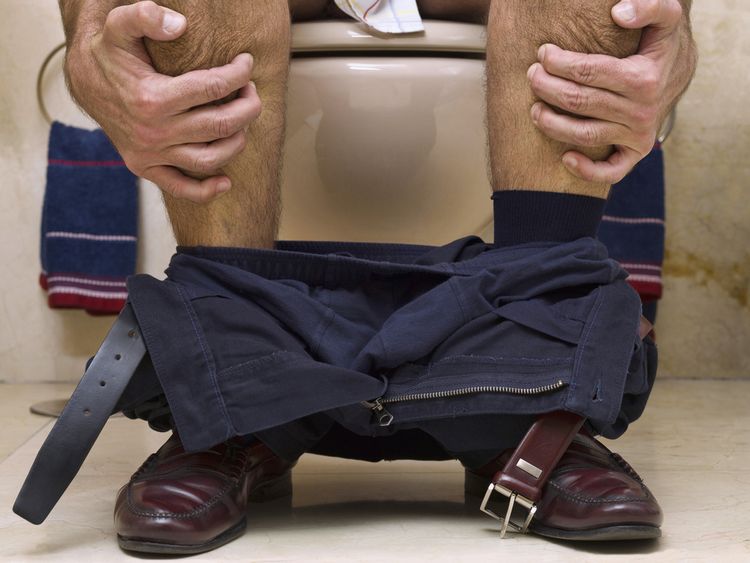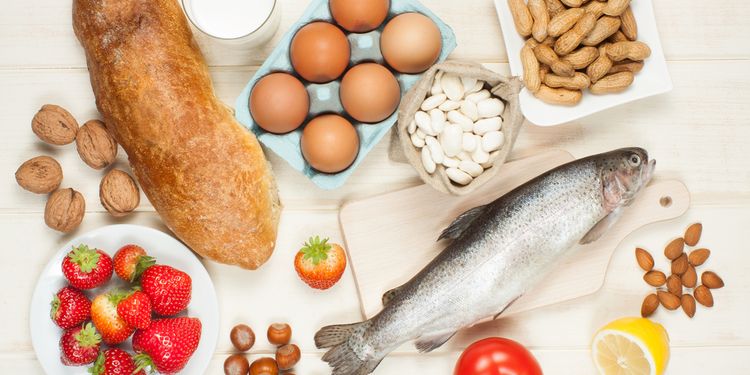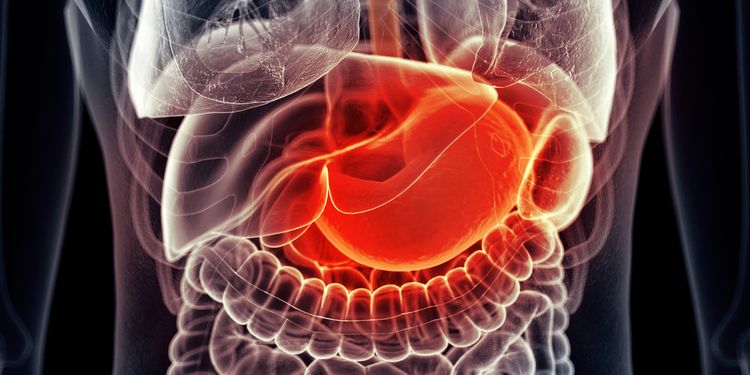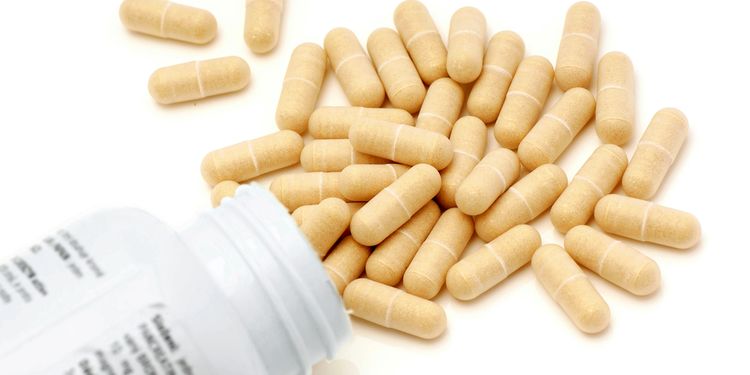3 Tips To Increase Your Digestive Enzyme Production For Better Gut Health

Ever feel pregnant with a “food baby” after a big meal?
That feeling of heaviness, bloating and sluggishness, as you curse yourself for indulging in the extra slice of cheesecake or serving of potatoes.
Your food is supposed to stay in your stomach for around 45 minutes before it moves through your intestines, but you aren’t supposed to be able to feel it in a painful or debilitating way. Believe it or not, you’re supposed to feel energized and alive.
That bogged down feeling rears its head when you lack the required enzymes in your stomach to break down what you’ve just consumed. The man who shed 20 lbs in 40 days, Abel James, did so by improving his digestion tenfold. He’s got some ideas on how you can get on track as well, that we’d like to share with you.

Digestion 101
Eat, hit the bathroom, do it all over again. That’s pretty much what most people know about the digestive process. It’s something we (and all other animals) do every day without so much as a second thought.
But get this – that isn’t how it’s supposed to be!
A huge bulk (up to 80%) of our daily energy expenditure is used to digest what we eat. Calories, the pesky things that many people count, are a unit of energy that we get from eating.
But not all calories are created equally. Food provides our bodies and brains with the fuel that we need: proteins, vitamins, nutrients, fats and glucose.
As soon as you eat, your food goes through the process of catabolism, where complex organisms are broken into their simplest forms so that your body can absorb them. From there, the different parts of your body cherry-pick the nutrients they need to survive.
While our diets have changed, our bodies haven’t been able to keep up. We don’t have enough digestive enzymes to completely break down our food. If you’re not digesting your food properly, there are countless problems that can arise.

Poor Digestion Problem #1: Food Allergies and Sensitivities
You might have noticed that food allergies have been on a meteoric rise these past few years. While some people think that claims of gluten sensitivity or lactose intolerance are simply people hopping on a trendy bandwagon, that simply isn’t true.
Food allergies are more common because we no longer eat whole foods that provide us with the energy and enzymes we need. Instead, our diets are made up of processed foods, low-quality meat, and starches. Our bodies simply can’t handle it.
Still, the Oreos and lunchmeat have to go somewhere. So what happens to them? They get handed over to your liver. But your liver can’t handle all of the undigested food, unprocessed bacteria, and toxic chemicals either, so they end up in your bloodstream.
Now, you have toxins floating freely throughout your body. Your immune system responds to these toxins by causing allergic reactions. And now you’ve triggered a process more commonly known as “leaky gut.”

Poor Digestion Problem #2: Low Grade Chronic Inflammation
The underlying factor behind many of your health problems and the reason why you don’t feel as well as you should? Inflammation. Some inflammation is good, as it acts as a protective agent when something attacks your immune system or when you’re injured. The chronic variety however, makes you feel all sorts of awful.
If you have poor digestion, you end up in a constant state of inflammation. This leaves you less resilient, with weakened tissues, swollen joints, and on an accelerated aging plan. Over time, constant inflammation can even lead to diabetes and cancer.
Poor Digestion Problem #3: Oxidative Stress
Stress will make you feel pretty crummy, but oxidative stress is the absolute worst. Oxidative stress occurs when your liver is overworked and can’t keep up with what’s being dumped into it. Free radicals will start to build up in your system in high numbers.
What’s up with this talk of free radicals? Well, your body produces them when necessary, such as in an effort to fight infection. What you need to know is that when you have more free radicals than you need, they attach to other things and grow.
Oxygen, while essential to life, is actually unstable and potentially dangerous if left unchecked – hence the term “oxidative stress.”
Free radicals are kept under control by antioxidant enzymes, which are produced by your liver, and antioxidant nutrients, which are obtained from vegetables, fruits, and herbs.
If you aren’t eating a diet filled with fresh vegetables and fruits, you’re fostering a low-antioxidant and high-free radical environment. Over time, this leads to IBS, diabetes, Alzheimer’s, heart disease, Parkinson’s, and general early aging.
Bad digestion is a problem. But like most problems, there’s a solution. And this one’s not even all that hard to achieve.
So What’s The Solution?
The expression “you are what you eat” ought to be changed to “you are what you absorb.” Chewing your food is so essential to absorption, especially if you’ve got a leaky gut. In addition to chewing, there are a few fixes that’ll make you feel like you’ve been blessed with a new digestive system.

Tip #1: Eat More Fresh Vegetables
If you’re one of the rare few who eats a diet made up of 90%+ raw vegetables, then kudos to you and skip this section entirely. But if you’re reading this, chances are that isn’t the case.
For starters, eating a diet made up of 90%+ raw vegetables is not only a little excessive, but also challenging to accomplish. On the other hand, cooking and processing foods removes those valuable enzymes.
The key here is to just do BETTER. Not perfect. Add 2-3 additional servings of fresh vegetables into your daily diet, and watch out for great results. A green smoothie is a great way to get multiple servings of veggies in one shot.
Tip #2: Add Some Spice
Adding certain spices to your diet can increases the production of pancreatic digestive enzymes. The list of spices includes curcumin (from turmeric), capsaicin, black pepper, ginger, fenugreek, mustard, cumin and asafetida (also called Hing).

Tip #3: Supplement
If you can’t get enough enzymes in your daily diet, you can take a digestive enzyme supplement. The majority of your enzymes are produced by your pancreas, but that won’t happen if your body isn’t working properly and you’re unable to break down your foods.
Lactase: You’ve heard of someone being “lactose intolerant,” but maybe you don’t really know what that means. People who suffer from lactose intolerance feel nasty and bloated after eating dairy products because they aren’t producing the required lactase enzyme to break down lactose. Supplementing with a lactase enzyme can help with dairy tolerance.
Lipase: This enzyme assists in digesting fats, and is found in cows, pigs, plants and fungi. It’s helpful for those suffering from Crohn’s Disease, Celiac Disease and Cystic Fibrosis. Always check with your doctor before introducing a lipase enzyme into your diet.
Bromelain: Evidence suggests that supplementation with bromelain, which is derived from the pulp and stem of pineapples, helps to soothe digestion, reduce inflammation from injury and reduce arthritic pain. Just be cautious to avoid it if you’re pregnant or taking prescription medications. It’s also not for children. As always, talk to your doctor first.
Great digestion is one key to living and feeling better. The process doesn’t have to be eat, hit the bathroom, and repeat the process. Choose high quality foods, chew them really well and nourish your body. And most importantly, learn to love what you put in your body.
Whether you’re experiencing food allergies, chronic pain, diabetes, or you simply don’t feel as well as you should, you CAN be healthy and happy again. The choice is in your hands, and ultimately in your mouth.
